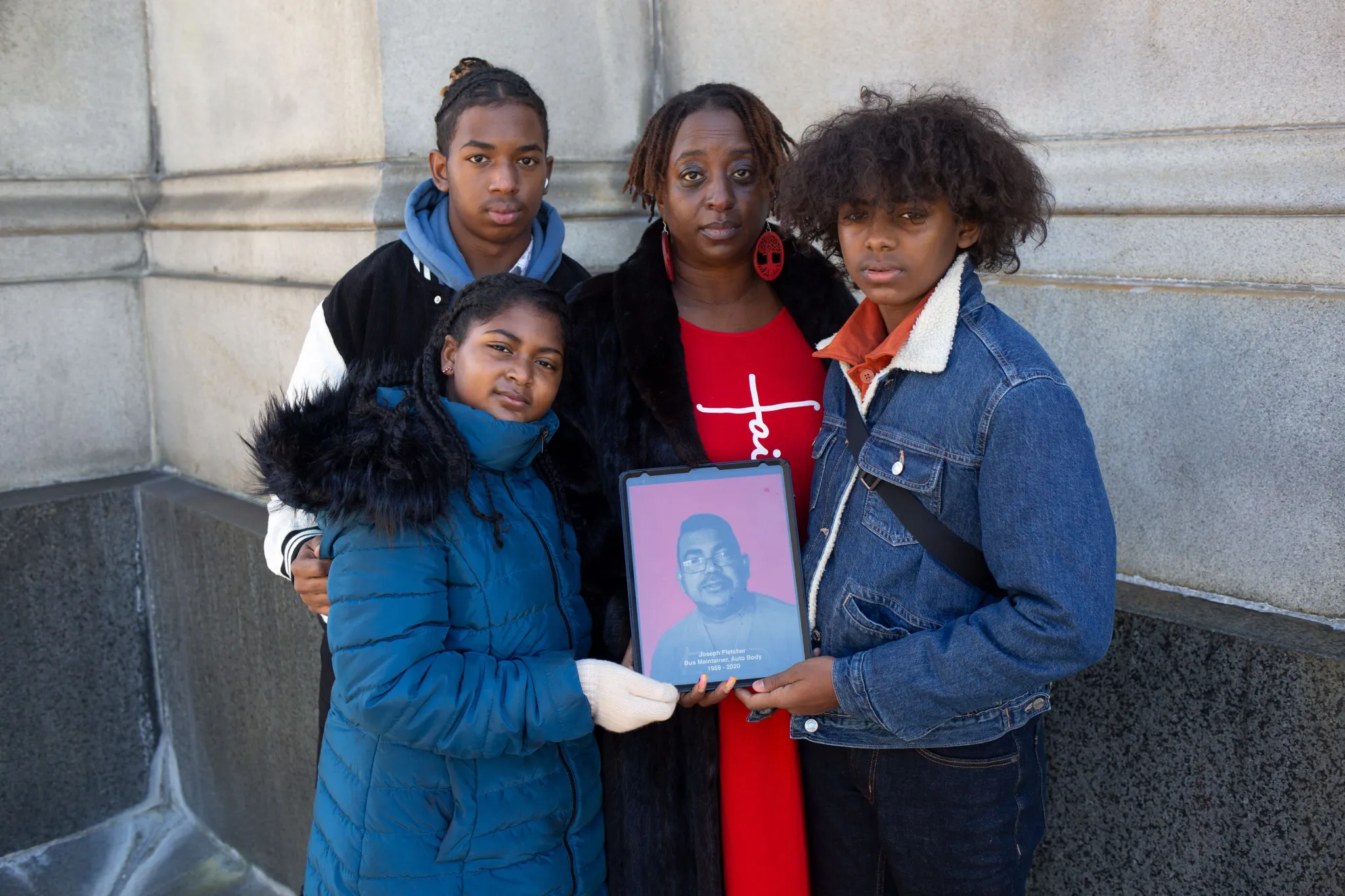As the federal COVID emergency ended nationwide, a group of COVID survivors and elected officials gathered on Thursday to push for a stronger safety net for thousands of children who lost parents and caregivers to COVID-19 in New York.
Standing in front of THE CITY’s MISSING THEM memorial in Elmhurst, Queens, state Assemblywoman Catalina Cruz and state Senator Jamaal T. Bailey announced a new Senate bill (S6592) to establish the New York COVID-19 children’s fund.
As part of the publicly funded initiative — known as “baby bonds’’ — the state will invest $1,000 per year for eligible minors. Once a child turns 18, they can use the funds to pay for an education, buy a home or start a business. The bill covers children who lost a “parent, custodian, legal guardian or related adult household member” regardless of immigration status.
“This isn’t going to be an easy task,” said Cruz, referring to the challenges the bill could face in Albany due to the ongoing budget deficit. “But I could not see any better way to invest this money than in helping the children whose lives were torn apart by no fault of their own.”
Cruz and Bailey are partnering with COVID Survivors for Change, a nonpartisan advocacy organization that successfully pushed for a new California law that will set aside $115 million to create trust funds for children from low-income families who lost parents to COVID, as well as for those in foster care.
Christopher Kocher, the organization’s executive director, cited THE CITY’s collaborative reporting as a catalyst for the bill in New York.
“The reporting that you guys did and the spotlight that you shined on it was absolutely something that has led to the momentum for elected officials to continue to care about this and laying the groundwork for conversations about ways we can continue to support the children,” Kocher said.
In April 2022, THE CITY’s MISSING THEM project — along with Columbia Journalism Investigations, Type Investigations and City Limits — published a story that revealed that more than 8,600 New York City children have lost a parent or caregiver to COVID — a population that would entirely fill 15 average-size city schools.
Black, Hispanic and Asian children in the city were roughly three times more likely to have lost a parent or caregiver to COVID compared to their white peers, according to analysis by the COVID Collaborative. The racial disparities in New York City were more pronounced than in the rest of the country.
A team of reporters spent a year documenting the NYC Department of Education’s response to COVID-bereaved children in public schools and found that decades of underfunding mental health care left schools unprepared to help grieving students.
Veronica Fletcher, a widowed mother of three who was featured in the earlier story, spoke in support of the bill at Thursday’s press conference. Fletcher lost her husband, Joseph Trevor Fletcher, an MTA bus maintainer and immigrant from Grenada, to COVID in April 2020.
The former New York City school teacher said she relocated her family from Brooklyn to Savannah, Georgia, in part, due to the lack of support her family received from New York City public schools. Fletcher was hit by a truck in 2016 and later went on disability as she was unable to work due to her injuries.

The Fletcher family lost MTA-worker Joseph Fletcher early in the pandemic. Image: Ben Fractenberg/THE CITY
Her eldest child, 17-year-old Joshua Fletcher, also spoke in favor of the bill. He said that losing his father while he was in high school forced him to rethink his future and focus on how he can make life easier for his mother. He graduated early and is now a freshman majoring in Biology at Georgia Southern University.
“I didn’t want to ask my mother for things or to do many activities that might cost money. I had to step into a role I didn’t know how to fill — to be a father-figure to my little brother and sister. I still don’t know how to do it,” he said. “There is no replacement for our father dying. He was our only source of income and this bill allows us to receive some sort of support and relief.”
His younger sister, Maddie Fletcher, 11, was also in attendance, clutching a framed photograph of their father. “To me, it would feel great to have support and know that other people are caring for us,” she said.
The story was produced in partnership with THE CITY, Columbia Journalism Investigations, Type Investigations and City Limits. Fazil Khan and Liz Donovan contributed reporting.